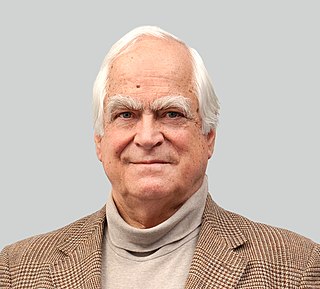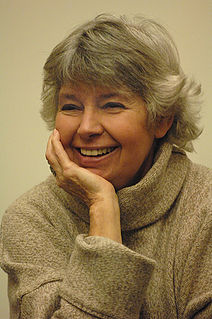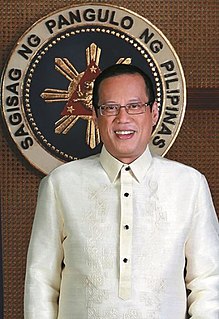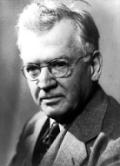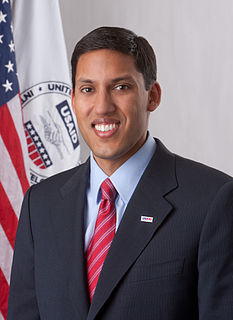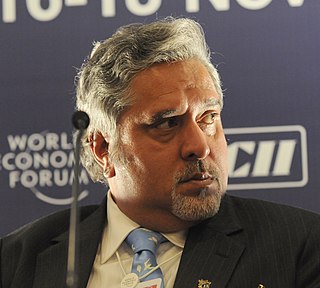Top 1200 Poverty Quotes & Sayings - Page 4
Explore popular Poverty quotes.
Last updated on December 4, 2024.
It is obviously easier, for the short run, to draw cheap labor from adjacent pools of poverty...than to find it among one's own people. And to the millions of such prospective immigrants from poverty to prosperity, there is, rightly or wrongly, no place that looks more attractive than the United States. Given its head, and subject to no restrictions, this pressure will find its termination only when the levels of overpopulation and poverty in the United States are equal to those of the countries from which these people are now so anxious to escape.
Today there are a huge number of think tanks working on poverty-related issues; there are books written on the topic; and university centers being created to study poverty. But, at the same time, the media has a terribly hard time with this issue; it's very hard to convince editors and publishers to devote resources to complex investigations of the lives of America's poor. And, as a result, too often poverty is portrayed in stereotypes, in sound bites, in a few pat images rather than in its full Technicolor complexity and diversity.
Unemployment in the sense of distress is widely disappearing. . . . We in America today are nearer to the final triumph over poverty than ever before in the history of any land. The poor-house is vanishing from among us. We have not yet reached the goal, but given a change to go forward with the policies of the last eight years, and we shall soon with he help of God be in sight of the day when poverty will be banished from this nation. There is no guarantee against poverty equal to a job for every man. That is the primary purpose of the economic policies we advocate
Government programs aim at getting money for poor people. Our hope was that knowledge would in the long run be more useful, provide more money, and eventually strike at the system-causes of poverty. Government believes that poverty is just a lack of money. We felt, and continue to feel, that poverty is actually a lack of skill, and a lack of the self-esteem that comes with being able to take some part of one's life into one's own hands and work with others towards shared-call them social-goals.
First, I was so dazzled and besotted by India. People said the poverty was biblical, and I'm afraid that was my attitude, too. It's terribly easy to get used to someone else's poverty if you're living a middle-class life in it. But after a while, I saw it wasn't possible to accept it, and I also didn't want to.
I've been doing music for many years and after a point what is the motivation that drives you to compose and to do stuff? I did this song for the U.N., a fighting for poverty anthem. That's when I realized that I could do a foundation. And when I started the foundation, it was basically to fight poverty and to help - that kind of stuff.
Liberals cling to the idea that critics of welfare are motivated by greed or callous disregard for the less fortunate. In fact, during the twenty-five years that followed Lyndon Johnson's declaration of war on poverty, U.S. tax payers spent $3 trillion providing every conceivable support for the poor, the elderly, and the infirm. Private foundations spent scores of billions more, and private and religious charities even more. Nevertheless, as Ronald Raegan later quipped, 'in the war on poverty, poverty won.'
Political systems must love poverty-they produce so much of it. Poor people make easier targets for a demagogue. No Mao or even Jiang Zemin is likely to arise on the New York Stock Exchange floor. And politicians in democracies benefit from destitution, too. The US has had a broad range of poverty programs for 30 years. Those programs have failed. Millions of people are still poor. And those people vote for politicians who favor keeping the poverty programs in place. There's a conspiracy theory in there somewhere.
No matter what the cause, even though it be to conquer with tanks and planes and modern artillery some defenseless black population, there will be no lack of poets and preachers and essayists and philosophers to invent the necessary reasons and gild the infamy with righteousness. To this righteousness there is, of course, never an adequate reply. Thus a war to end poverty becomes an unanswerable enterprise. For who can decently be for poverty? To even debate whether the war will end poverty becomes an exhibition of ugly pragmatism and the sign of an ignoble mind.
There are some people who say that they?re concerned only with poverty but not inequality. But I don?t think that is a sustainable thought. A lot of poverty is, in fact, inequality because of the connection between income and capability?having adequate resources to take part in the life of the community.
I don't want to sound Pollyannish about this. I understand that poverty is never just poverty. It's often this collection of maladies, this compounded adversity. I'm not naive about the problem. But I think that stable, steady housing is one of the surest footholds we could have on the road to financial stability.
Like slavery and apartheid, poverty is not natural. It is man-made and it can be overcome and eradicated by the actions of human beings. Overcoming poverty is not a gesture of charity. It is an act of justice... Sometimes it falls upon a generation to be great. You can be that great generation. Let your greatness blossom.
If we continue on the trend we’re on, we can reduce extreme poverty by more than 60 percent-lifting more than 700 million people out of dollar-and-a-quarter a day poverty and back from the brink of hunger and malnutrition. But if we accelerate our progress from 3 percent annual reduction to over 6 percent and focus on key turnarounds in some difficult countries, we could get a 90 percent reduction. We could essentially eliminate dollar-and-a-quarter head count poverty.
The greatest disease in the West today is not TB or leprosy; it is being unwanted, unloved, and uncared for. We can cure physical diseases with medicine, but the only cure for loneliness, despair, and hopelessness is love. There are many in the world who are dying for a piece of bread but there are many more dying for a little love. The poverty in the West is a different kind of poverty -- it is not only a poverty of loneliness but also of spirituality. There's a hunger for love, as there is a hunger for God.
Given the relativity concept, poverty cannot be eliminated. Indeed, an economic upturn with a broad improvement in household income does not guarantee a decrease in the size of the poor population, especially when the income growth of households below the poverty line is less promising than the overall.
In today's world, people experience two types of poverty: the poverty caused by lack of food, clothing and shelter, and the poverty caused by lack of love and compassion. Of these two, the second type needs to be considered first because if we have love and compassion in our hearts, then we will wholeheartedly serve those who suffer from lack of food, clothing and shelter.
With segregation, with the isolation of the injured and the robbed, comes the concentration of disadvantage. An unsegregated America might see poverty, and all its effects, spread across the country with no particular bias toward skin color. Instead, the concentration of poverty has been paired with a concentration of melanin.








